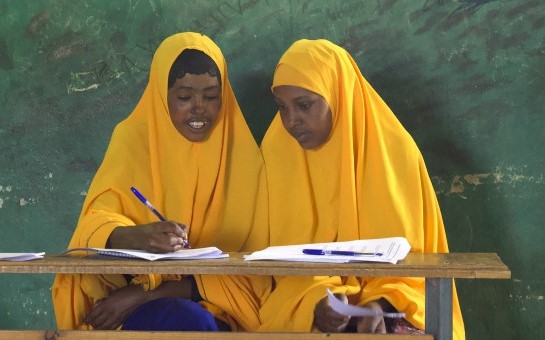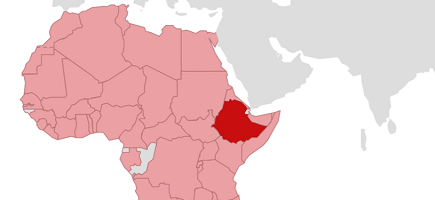
03.02.2023
For the right to health – eradicating female genital mutilation
Governments and civil society in the Horn of Africa are working together to end female genital mutilation.
Female genital mutilation – or FGM for short – causes unbearable pain, leaves survivors scarred for life, and is a serious human rights violation. The procedure involves removing some or all of the external female genitalia without any medical need to do so. Worldwide, over 200 million girls and women have suffered FGM. Ethiopia, Somalia and Sudan have declared war on this practice. Since 2020, the Deutsche Gesellschaft für Internationale Zusammenarbeit (GIZ) GmbH has been supporting them, on behalf of the German Development Ministry (BMZ).
Jana Wegmann, a gender and human rights expert, is managing the project. ‘We can only fight FGM effectively if everyone pulls together, the government and civil society,’ she tells us. In Ethiopia, FGM has been banned by law since 2005. But the process is still widespread. The reasons are many and varied, but the underlying goal is to control the sexuality of girls and women. ‘We are working with the Ethiopian Ministry of Women and Social Affairs and also with local action groups, because social change has to take place at local level in the community,’ explains Wegmann.
GIZ has trained some 500 ministry staff, media workers and representatives of local NGOs on FGM. But training has also embraced the diaspora, as women and girls with FGM from these countries are now living in Europe. Money from a fund allows local NGOs to conduct education campaigns, including radio series, drama performances and education in accommodation centres for internally displaced people.
Women are raising their voices against FGM
One action group working with GIZ is the Network of Ethiopian Women’s Associations. 25-year-old Biruktawit Berhanu is campaigning strongly against FGM at the University in Addis Ababa. ‘It is important for me to speak up about the challenges that Ethiopian girls and young women face – we need to be heard, we need to exercise our rights, we need to support each other.’ GIZ is assisting more than 30 action groups of this sort in Ethiopia, Somalia and Sudan, reaching many people in these communities.




